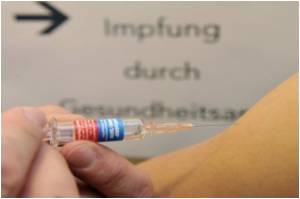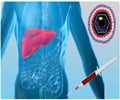Researchers warn that a new strain of norovirus that could cause a severe epidemic of acute gastroenteritis this winter has surfaced.

It has led to the closure of dozens of hospital wards in Britain and affected schools, age-care facilities, cruise ships and workplaces.
Norovirus are a group of viruses that cause food-poisoning and acute gastroenteritis (stomach flu) that can make a person feel very sick but which typically resolves within two to three days.
Pandemic norovirus strains have emerged around the world five times, in 1996-97, 2002, 2004, 2006 and 2009.
Peter White, professor and his team in the School of Biotechnology and Biomolecular Sciences, University of New South Wales (UNSW), identified the new strain from Sydney patients last March, with researchers at the Prince of Wales Hospital.
Of the 40 different strains of norovirus circulating in the community at any time, only one type, known as GII.4, causes epidemics and pandemics.
Advertisement
"So I knew straight away it was a potentially pandemic strain," he said, according to an UNSW statement.
Advertisement
They found Sydney 2012 was a combination of two strains that originated in Holland and Japan in about 2007, and must have initially emerged in a patient, who was infected with both.
It is no more virulent than other strains, but its novelty means it can evade the human immune system.
"Even if you've had a norovirus infection in the past it won't protect you from this one," White said.
It is expected to become the dominant strain in Australia in winter, taking over from the previous pandemic strain known as New Orleans 2009.
"As many as 400,000 people could become infected," White added.
Source-IANS











